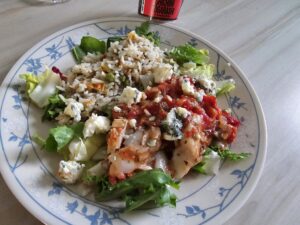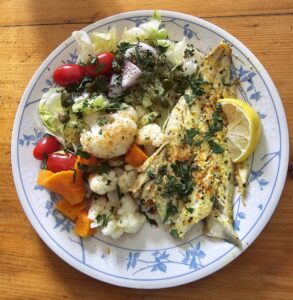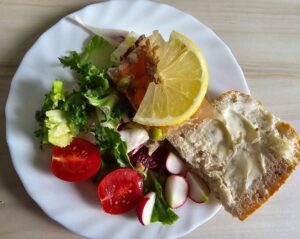Question: I had spine surgery, and I wonder if there are any recommendations for my diet now that I need to recover?
Answer: After spine surgery, following a well-balanced and nutrient-rich diet can significantly support your body’s healing process and improve your overall recovery. Your body needs the right nutrients to repair tissues, reduce inflammation, and strengthen muscles. Here are some essential dietary guidelines to help you recover effectively:
Dietary Guidelines for Post-Surgery Recovery
- Prioritize Protein:

Protein is the building block for repairing tissues and regenerating muscle. Including high-quality protein sources such as lean meats, poultry, fish, eggs, beans, and nuts in your diet will help speed up your recovery. If you’re vegetarian or vegan, plant-based proteins like lentils, chickpeas, tofu, and quinoa can be great alternatives. - Boost Bone Health with Calcium and Vitamin D:
Calcium and Vitamin D are crucial for bone health, especially after spinal surgery. 
- They support bone repair and help maintain bone density. Include dairy products like milk, yoghurt, and cheese, as well as leafy greens, almonds, and fortified plant-based milk. To get Vitamin D, spend some time in sunlight and consider foods like fatty fish, egg yolks, or a Vitamin D supplement if recommended by your doctor.
- Increase Fiber Intake:
Constipation is a common side effect of pain medications post-surgery. Eating a diet rich in fibre can help keep your digestive system regular. Incorporate plenty of fruits, vegetables, and whole grains like oats, brown rice, and whole wheat bread. 
- Drinking sufficient water also helps support the digestive process.
- Include Healthy Fats for Inflammation Reduction:
Healthy fats, particularly omega-3 fatty acids, can help reduce inflammation and support your immune system. Incorporate sources like fatty fish (salmon, mackerel, sardines), flaxseeds, chia seeds, walnuts, and olive oil. Avoid trans fats and limit saturated fats, as these can contribute to inflammation. - Stay Hydrated:
Proper hydration is essential for maintaining circulation, delivering nutrients to your cells, and flushing toxins. Aim to drink at least eight glasses of water daily or more if your doctor advises. Proper hydration can also help prevent dehydration-related muscle cramps and aid in overall recovery. - Limit Sugar and Processed Foods:
Refined sugars and processed foods can slow the healing process and contribute to inflammation. Instead, focus on whole, unprocessed foods rich in nutrients and antioxidants. Avoid sugary drinks, pastries, and processed snacks. - Consider Supplements, if Necessary:
Your doctor or nutritionist might recommend supplements based on your specific nutritional needs and any dietary restrictions you may have. Commonly suggested supplements include calcium, Vitamin D, magnesium, and omega-3 fatty acids. Always consult your healthcare provider before starting any new supplements to ensure they are safe and appropriate.
Sample One-Day Meal Plan for Post-Surgery Recovery
Here’s a sample meal plan to help you incorporate these dietary recommendations into your daily routine:
Breakfast:
- Scrambled eggs with spinach and mushrooms
- Whole grain toast
- A glass of fortified orange juice (for added calcium and Vitamin D)
- A serving of mixed berries (blueberries, strawberries)
Mid-Morning Snack:
- Greek yoghurt topped with a tablespoon of ground flaxseeds and a few almonds
Lunch:
- Grilled chicken salad with mixed greens, cherry tomatoes, cucumbers, and avocado
- Drizzled with olive oil and lemon dressing
- A small side of quinoa
Afternoon Snack:
- Sliced apple with a tablespoon of natural peanut butter
Dinner:
- Baked salmon fillet with a side of steamed broccoli and sweet potatoes
- A small bowl of lentil soup
- A glass of water with a slice of lemon
Evening Snack (Optional):
- A cup of chamomile tea and a piece of dark chocolate (70% cocoa or higher)
Final Thoughts
Every individual’s recovery process is unique, and nutritional needs can vary based on your overall health, the type of surgery, and your body’s response. Consulting with your doctor or a registered dietitian can help you create a personalised nutrition plan supporting your healing process, managing post-surgery complications, and improving your overall well-being.
Remember, your diet is a powerful tool in your recovery journey. Choosing the right foods can significantly affect how you feel and how quickly you regain your strength.
